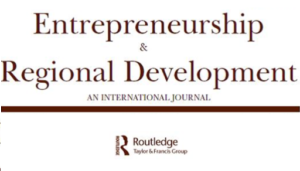Episode 57 – Sakura Yamamura & Paul Lassalle – Intersecting where? The multi-scalar contextual embeddedness of intersectional entrepreneurs
We explore the experiences of LGBT* ethnic minority entrepreneurs, their changing locations and their entrepreneurial activities. Using a unique mixed-method approach which collected empirical data from Germany and the Netherlands, the paper combines an ethnographic fieldwork of intersectional entrepreneurs, community activists and policy-makers with an original survey with LGBT* customers.
Read More
